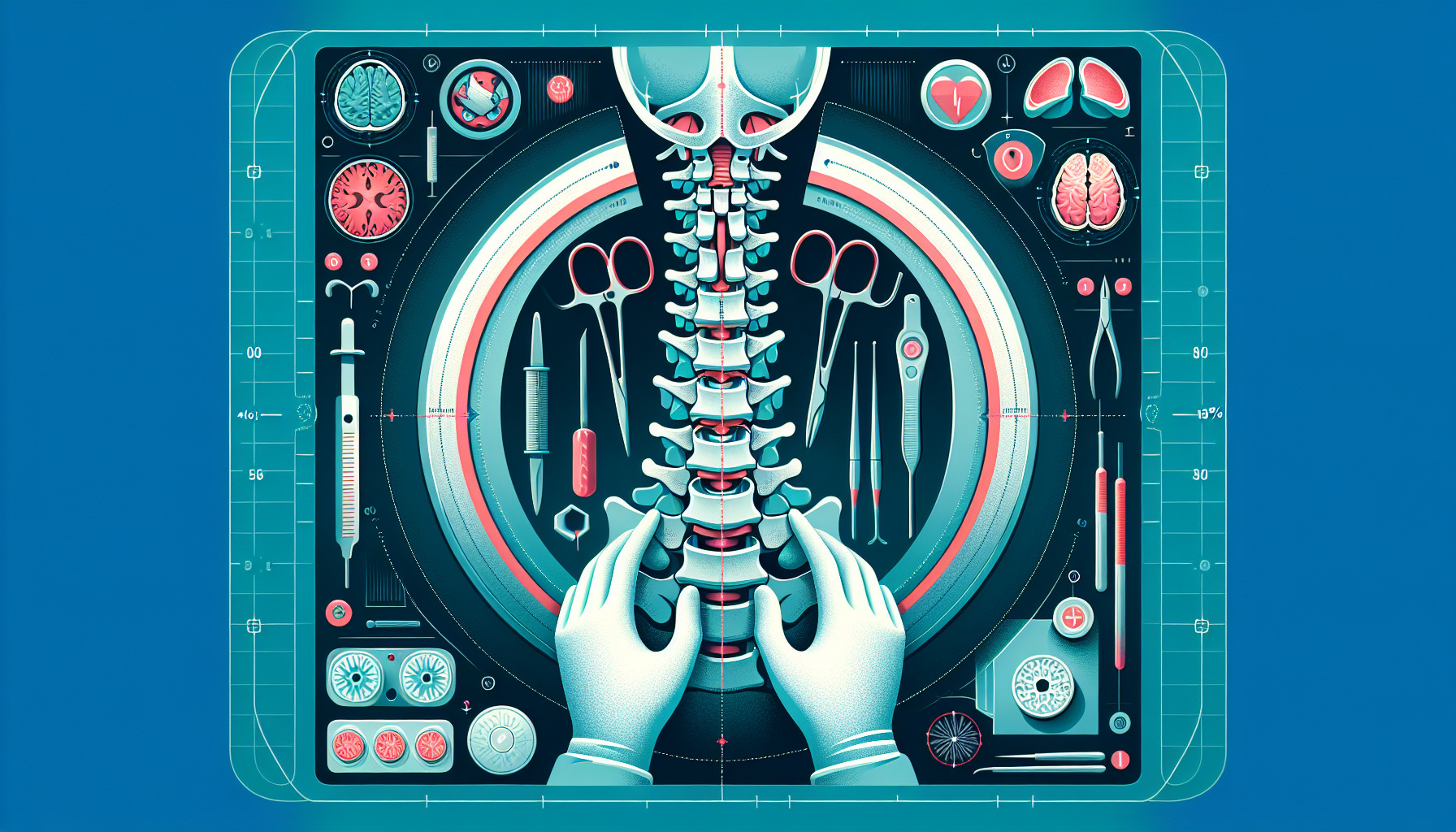Our Summary
This research paper reviews the safety of two types of spinal surgery, anterior lumbar interbody fusion (ALIF) and extreme lateral transpsoas interbody fusion (ELIF), which are used to treat degenerative spinal disorders. The researchers also looked at the relationship between the use of neuromonitoring (monitoring the nervous system during surgery) and complications that occur during these procedures.
They reviewed 34 studies from various databases and found that while ELIF has a lower overall complication rate compared to ALIF, it has a higher risk of causing nerve-related complications. This remains true even when neuromonitoring is used during the ELIF procedure.
In simpler terms, while ELIF may have fewer complications overall, patients are more likely to experience nerve-related issues with this type of surgery compared to ALIF. Using neuromonitoring during ELIF can reduce complications, but it doesn’t eliminate the higher risk of nerve-related problems.
FAQs
- What are the two types of spinal surgery reviewed in this research paper?
- How does the use of neuromonitoring affect the complication rates in ELIF and ALIF surgeries?
- Which type of spinal surgery has a higher risk of causing nerve-related complications?
Doctor’s Tip
One helpful tip a doctor might tell a patient about spinal fusion is that while certain types of procedures may have lower overall complication rates, there may be a higher risk of nerve-related complications. It is important to discuss these risks with your doctor and weigh the potential benefits and risks before undergoing surgery. Additionally, using neuromonitoring during the procedure may help reduce complications, but it may not completely eliminate the risk of nerve-related issues.
Suitable For
Patients who are typically recommended spinal fusion surgery include those with degenerative spinal disorders such as degenerative disc disease, spinal stenosis, spondylolisthesis, or spinal fractures. These conditions can cause chronic back or leg pain, numbness or weakness in the extremities, difficulty walking, or other symptoms that significantly impact daily life.
Spinal fusion surgery is considered when conservative treatments such as physical therapy, medications, or injections have not provided relief. The goal of the surgery is to stabilize the spine, reduce pain, and improve overall function and quality of life for the patient.
It is important for patients considering spinal fusion surgery to discuss their individual case with a spine specialist to determine if they are a good candidate for the procedure. Factors such as overall health, severity of symptoms, and the specific type of spinal disorder will be taken into consideration when recommending spinal fusion surgery.
Timeline
Timeline of a patient’s experience before and after spinal fusion:
Before spinal fusion:
- Patient is diagnosed with a degenerative spinal disorder and is recommended to undergo spinal fusion surgery.
- Patient undergoes pre-operative evaluations and tests to assess their overall health and suitability for surgery.
- Patient may undergo physical therapy or other treatments to prepare for surgery.
- Patient meets with their surgeon to discuss the procedure, potential risks, and expected outcomes.
During spinal fusion:
- Patient is admitted to the hospital on the day of surgery.
- Patient undergoes anesthesia and the surgical team performs the spinal fusion procedure, either ALIF or ELIF.
- Neuromonitoring may be used during the surgery to monitor the nervous system and reduce the risk of complications.
- Surgery typically lasts several hours, depending on the complexity of the case.
- After surgery, patient is monitored in the recovery room before being transferred to a hospital room.
After spinal fusion:
- Patient stays in the hospital for a few days for monitoring and pain management.
- Patient may need to wear a brace or undergo physical therapy to aid in the healing process.
- Patient is discharged from the hospital and continues to recover at home.
- Patient follows up with their surgeon for post-operative appointments to monitor healing and address any concerns.
- Over time, patient gradually resumes normal activities and may experience improved mobility and reduced pain.
What to Ask Your Doctor
- What are the benefits of spinal fusion surgery compared to other treatment options for my condition?
- What are the potential risks and complications associated with spinal fusion surgery?
- Are there any alternative surgical techniques or approaches that could be more suitable for my specific case?
- How experienced are you in performing spinal fusion surgery, particularly the specific type of fusion being recommended for me?
- Will neuromonitoring be used during my surgery, and how does it help reduce complications?
- What is the expected recovery time and rehabilitation process following spinal fusion surgery?
- What are the long-term outcomes and success rates for patients who undergo spinal fusion surgery?
- Are there any lifestyle changes or modifications I should consider post-surgery to optimize healing and prevent complications?
- How frequently will I need follow-up appointments and monitoring after the surgery?
- Are there any specific red flags or warning signs I should watch for after surgery that may indicate a complication?
Reference
Authors: Härtl R, Joeris A, McGuire RA. Journal: Eur Spine J. 2016 May;25(5):1484-1521. doi: 10.1007/s00586-016-4407-6. Epub 2016 Mar 17. PMID: 26983424
